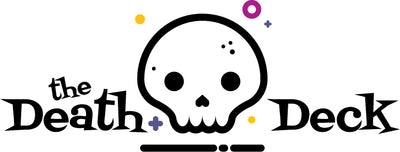
For many, many years I was guilty of this very thing. Avoiding the topic. Changing the subject. Redirecting attention to something easier to speak about.
When the time came that I HAD to talk about it... it was much too late.
I’ve experienced firsthand the panic, chaos, and overwhelming feelings of fear that come with a conversation too late. Avoiding.
When my husband Joe was diagnosed with pancreatic cancer over 10 years ago, we avoided.
He was not going to, in his words, “let this get me.” He would not release hope that he could beat the odds, he would be a “statistic of one,” and survive what is referred to as one of the deadliest of cancers.
His diagnosis was excruciating to hear and overwhelming to process. Once given, it was way too difficult to speak about the very possible ending that he now faced.
During the year-long experience, I tried to get him to write about his life, his legacy, his thoughts. He could not. I asked him if I could video him answering some questions. He would not. To him, if he entertained the thought of his own death, even for a moment, it would open the door and become the reality he was not willing to face.
So, I stopped trying to force the issue. I let him process what he needed to process on his own terms, and held firm to hope and his motto “I am a statistic of one.” He fought. I supported. It was a hell of a battle.
We avoided the talk about the “What if’s: What if this does get you? What will happen if you die?”...until it was inevitably happening. By then, it was too late.
I don’t look back and regret how this played out. They were decisions we made in the moment and from the heart.
I do, however, regret not having these conversations earlier -- well before the cancer diagnosis.
Once diagnosed, a plan was made to increase his odds for survival -- a plan that did not include talking about death.
I thought we were prepared.
Will. Check.
Advance Health Care Directive. Check.
Life Insurance. (Thankfully) Check.
Final wishes, thoughts on leaving a legacy, funeral/celebration plans, end-of-life requests...Nope. None of these had ever been discussed.
It’s either too early or too late.
Talking about death is pretty easy to avoid in the absence of urgency. It feels awkward or premature. Why talk about it? Why curse it?
Talking about death in the moment after a massive decline in health, debilitating diagnosis, or even a sudden death becomes unavoidable and frankly too late.
According to a 2014 study by the American Journal of Preventive Medicine, only about a quarter (26 percent) of Americans currently have an advance directive — like a living will. Lack of awareness was the top reason for why the majority do not.
Yes, Joe and I had the basics in place. Took care of that when we decided to have children. Done. But for us, the basics did not include much more than the information asked on the forms. Lack of awareness. The details were all left to me and, as well as I knew my husband, there were decisions made I will always second guess.
So why are we not talking about this stuff...and talking about it early?
It can be terrifying. Emotionally stirring. Uncomfortable.
It’s something we fear.
But we all know, with 100% certainty, death is something we cannot avoid.
It’s also something that, once you open the conversation, can be quite interesting to explore especially since we do it so infrequently.
So why not talk about it? It’s a human experience that doesn’t have to be riddled with chaos at the finish line. With a little effort to avoid avoiding “the talk,” open discussions about wishes and values, and acceptance that “hopefully not now, but someday this will be,” the dying process can potentially become a more peaceful experience for all involved.
It’s what we all deserve: a prepared, well orchestrated and graceful exit.
So, let’s talk.


Comment (1)
It’s either too early or too late…..YES! THIS!